#cataract eye surgery
Text
Are you experiencing a blurry vision that makes it difficult to read, drive, or recognize faces? You may have cataracts, a clouding of the eye's natural lens. Fortunately, laser cataract surgery offers a safe and effective solution! This procedure utilizes advanced laser technology for unmatched precision and minimizes discomfort compared to traditional surgery. Contact us today to schedule a consultation!
URL: https://centerforsightswfl.com/service/laser-cataract-surgery/
#laser cataract surgery#cataract eye surgery#cataract removal surgery#laser cataract surgery treatment
0 notes
Text
The Cataract Journey: Before, During and After

Inside your eye, you have a natural lens that focuses light onto your retina. A cataract occurs when this lens becomes cloudy, which affects the light passing through clearly. Cataracts are a common vision problem that can occur at any age and can significantly affect your quality of life. They are most commonly caused by ageing; however, certain medications, some general health conditions, or eye injuries can also contribute to early cataract growth.
Cataract surgery is a highly effective and safe procedure that often results in significantly improved vision. During surgery, your cataract surgeon removes the cloudy natural lens and replaces it with an artificial intraocular lens (IOL). At Nexus Eyecare, we use the latest diagnostic technology and surgical techniques to provide our patients with the best possible visual outcomes following cataract surgery. In this blog, we share what to expect before, during, and after your cataract journey with us.
Initial Consultation With Your Cataract Surgeon
Before cataract surgery, most patients present with symptoms of:
Reduced clarity, blurry or cloudy vision
Increased glare and difficulty focusing from light to dark spaces
Trouble with haloes at night, especially when driving
If not treated, cataracts continue to progress, causing increased symptoms and further vision loss.
During your initial consultation, your cataract surgeon will thoroughly examine your eye health and discuss your treatment options. Cataract surgery can be performed at any stage of cataract development; the decision to operate is mostly dependent on the degree of visual impairment and how much the cataract is affecting your daily life.
Once the decision to operate has been made, additional specialised tests are used to carefully measure your eye and calculate which lens will achieve the best vision for you. There are several different IOLs available. Your cataract surgeon will discuss and explain all the lens choices and help you choose which lens will work best for you and your lifestyle. It is important to understand the types of IOL available. To discover more, read our blog: What is an IOL and which one is the best fit for your lifestyle?
Prior To Your Surgery
The hospital will contact you a few days before the surgery with an admission time and fasting details. Your cataract surgeon will have discussed any medications that you are taking and provided instructions for them when you booked in for your surgery.
It is advisable to wash your hair, so you can avoid hair washing for a few days after your surgery.
On The Day Of Cataract Surgery
Cataract surgery is usually performed as an outpatient (day surgery) procedure. The cataract surgery only takes approximately 15-30 minutes; however, you will be at the surgery facility for longer to prepare your eye before surgery and allow for a brief recovery period afterwards.
Cataract surgery is performed by a cataract surgeon using local anaesthesia, which means you will be awake but won’t feel any pain. The reason local anaesthesia is preferred over general anaesthesia is:
Better patient safety: general anaesthesia carries a higher risk of complications than local anaesthesia
Faster recovery: Patients recover faster from a local anaesthetic; they often feel better afterwards and can return home on the same day
Cost-effective: Local anaesthesia is less expensive for the patient
In rare cases, where a patient cannot tolerate local anaesthesia or has special medical conditions, general anaesthesia may be used, but this is not the standard practice for cataract surgery.
During the surgery, the cataract surgeon will create a tiny incision in your eye to access the cataract. The cataract is then removed through the incision, and an IOL is inserted to replace the natural lens. The incision is so small that it does not usually require any stitches; instead, it seals naturally. Your eye is then covered with a protective shield to prevent accidental rubbing or pressure on the wound. The shield is worn overnight and removed the next day at your postoperative visit.
After surgery, you will spend some time in a recovery area before heading home.
After Cataract Surgery
The day after your surgery, you will return to our clinic, your shield will be removed, and your cataract surgeon will examine your eye. One of the most remarkable aspects of cataract surgery is the rapid improvement in vision. Many patients report significantly clearer and more vibrant vision shortly after the procedure. While the initial visual improvement is often swift, it can take a few days to weeks to reach optimal clarity. Remember, everybody is different, every eye is different, and your recovery will depend on you and the health of your eye. Some do’s and don’ts following cataract surgery include:
Do’s
Don’ts
After surgery, you will be given some eye drops to use. Eye drops prevent infection and reduce inflammation. Make sure you use the eye drops as directed by your cataract surgeon.
Do not rub your eye, and try to avoid getting any water in the eye when showering and washing your face. Try to avoid washing your hair for the first few days if possible.
No swimming, even with goggles on.
Try to rest, be patient, and let your body heal!
You can gradually resume light activities, such as walking, reading, and watching TV.
Avoid heavy lifting, strenuous activities, and excessive bending to prevent pressure and strain on the eye.
Make sure you attend your postoperative appointments so your cataract surgeon can monitor your progress and ensure your eye is healing correctly.
Do not drive; your cataract surgeon will advise when you are ready to return to driving.
The benefits of cataract surgery can extend beyond visual improvement. Patients often regain their independence, for some, it means they can return to everyday activities like driving or reading that were once hindered by cataract development.
To find out if cataract surgery is right for you, visit Nexus Eyecare and let us guide you on your journey to brighter, clearer vision.
0 notes
Text
Protect Your Vision with Diabetic Eye Care in South Carolina

Prioritize your vision with comprehensive diabetic eye care at our clinics located in North Charleston, West Ashley I, Mt. Pleasant, Belle Hall, Mary Ader, and Hilton Head, SC. We offer specialized services like cataract eye surgery, diabetic macular edema treatment, and glaucoma eye disease management. Don't overlook the importance of a regular diabetic retinopathy exam to prevent vision loss. Schedule An Appointment today and prioritize your eye health.
URL: https://carolinaeyecare.com/service/diabetic-eye-exams/
#diabetic eye care#cataract eye surgery#diabetic macular edema treatment#glaucoma eye disease#diabetic retinopathy exam
0 notes
Text
What is the Ideal Gap Between Two Cataract Surgery?
Understanding Cataract Surgery
Before delving into the optimal interval between surgeries, it's crucial to understand the basics of cataract surgery. Cataracts occur when the natural lens of the eye becomes cloudy, leading to blurred vision and other visual disturbances. During cataract surgery, the cloudy lens is removed and replaced with an artificial intraocular lens (IOL), restoring clear vision.
Factors Influencing the Decision
Several factors influence the decision regarding the timing of cataract surgeries for both eyes
Visual Impairment
The primary reason for cataract surgery is visual impairment. The degree of impairment in each eye may vary, influencing the urgency of surgery.
Patient Preferences
Some patients may prefer to undergo both surgeries within a short time frame to expedite the overall recovery process.
Surgeon Recommendations
Ophthalmic surgeons play a pivotal role in guiding patients on the optimal timing between surgeries based on individual health considerations and surgical outcomes.
Medical Conditions
The presence of other medical conditions, such as diabetes or cardiovascular issues, may impact the decision-making process, as these conditions can affect the overall health and healing capacity of the patient.
Balancing Visual Rehabilitation and Safety
While some patients may express a desire to have both eyes corrected simultaneously, surgeons often recommend a more conservative approach. The general consensus among ophthalmic professionals is to allow a gap between cataract surgeries to ensure optimal visual rehabilitation and reduce potential complications.
Monovision Considerations
Monovision, a technique where one eye is optimised for distance vision and the other for near vision, may be an option for certain patients. However, adjusting to monovision can take time, and patients need to be comfortable with this approach.
Adaptation Period
Allowing a gap between surgeries gives patients the opportunity to adapt to the changes in vision in one eye before undergoing the second procedure. This can be particularly important for individuals with high visual demands, such as those who drive or work extensively on computers.
Reducing Infection Risk
Spacing out cataract surgeries helps minimise the risk of infection, a concern that becomes more significant when both eyes are operated on in close succession.
Why visit a Cataract specialist?
Visit a cataract specialist if you are experiencing-
Trouble with night vision
Increased sensitivity to light
Double vision in one eye
Hazy or foggy vision
Blurry vision
Advantages of Cataract Surgery
Clear vision
Brighter colours
More independence
Increased safety
One-time treatment
Quick Action is Crucial
Avoid postponing your visit because untreated conditions may result in:
Gradual deterioration of vision.
Potential for permanent blindness.
Elevated risks of falling and accidents.
Difficulty in performing routine daily tasks.
Hence, the optimal gap between two cataract surgeries is a nuanced decision that should be made collaboratively between the patient and their ophthalmic surgeon. While some may choose a shorter interval for personal or logistical reasons, the majority of surgeons recommend allowing a sufficient gap to ensure a smoother visual adaptation, reduce the risk of complications, and optimise overall patient safety.
Ultimately, the goal of cataract surgery is to enhance not only the clarity of vision but also the quality of life. By striking the right balance between visual rehabilitation and patient safety, individuals can embark on their post-surgery journey with confidence, enjoying the world through a clearer and brighter lens.
#cataract eye surgery#best cataract eye hospitals#eye hospitals#cataract eye surgery hospitals#cataract eye care treatment#cataract surgery
0 notes
Link
0 notes
Text
Top 15 cataract eye surgery FAQs
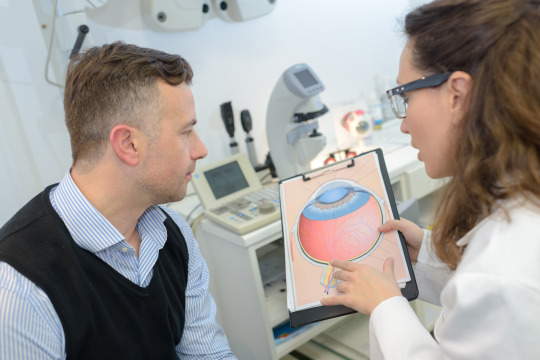
Cataract eye surgery is a procedure that is done to remove the lens of the eyes and replace it with an artificial lens. In other words, cataract eye surgery is done to remove cataracts, a build-up of proteins and fibres that cause vision to become blurry. If you or your family member has been recommended to undergo cataract eye surgery, here are the top 15 FAQs on cataract eye surgery and their answers that you might find helpful:
Question: 1. How long does the cataract surgery take?
Cataract surgery itself takes 15 to 20 minutes. Pre-surgery and post-surgery observations may take time.
Question: 2. Is cataract surgery painful?
Cataract eye surgery is not painful as numbing eye drops are administered.
Question: 3. What are the types of lenses used in cataract surgery?
An intraocular lens implant is an artificial lens used during cataract surgery. There are two types:
Monofocal lenses: These lenses provide good distance vision. But, you would still need glasses to cover reading or distance vision depending on the lenses.
Multifocal lenses: These lenses offer an excellent probability of attaining spectacle independence.
Question: 4. Can I go back to work the same day after cataract surgery?
Eye doctors advise you to go home and rest for the remaining part of the day. Ideally, people resume work within 3 to 4 days.
Question 5: Can I drive home after cataract surgery on one eye?
No, you should drive on the day of surgery. Arrange someone to drop you home.
Question: 6. How long to take the eye drops after cataract surgery?
Eye doctors give you eye drops for four weeks after cataract eye surgery. The antibiotic eye drops help in preventing any infection. However, the duration may vary from one case to another.
Question: 7. Is it better to have cataract surgery in both eyes?
Even if you have cataracts in both eyes, cataract surgery is performed on one eye at a time. Surgery on the other eye is scheduled a couple of weeks after.
Question 8: When can I see after cataract surgery?
Most people experience improved vision a couple of days after cataract surgery.
Question: 9. Is it good to wear makeup the next day after the cataract surgery?
It is best not to wear makeup the next day after the cataract surgery. Cosmetics can cause eye irritation and trigger allergic reactions.
Question: 10. When can I exercise after cataract surgery?
Under normal circumstances, you can resume light exercise within a week after the cataract surgery. But it is best to consult your doctor before resuming exercise.
Question: 11. When can I go swimming after the cataract surgery?
You should wait at least four weeks after cataract surgery before swimming in a pool. It is important to seek your eye doctor’s approval before you start swimming again.
Question: 12. When can I fly after the cataract surgery?
Most eye doctors suggest you avoid air travel immediately after cataract surgery.
Question: 13. If I don’t get cataract surgery, what will happen?
Over time, cataracts become worse and start to interfere with vision. Without treatment, cataracts will lead to total loss of vision.
Question: 14. After the cataract surgery, when can I get my eye wet?
You can shower or wash your hair the day after surgery. However, make sure to keep water soap and shampoo out of your eye for the first week.
Question 15: Can I watch TV after cataract surgery?
It is best to avoid screen time on the day of surgery. The next day, you can watch some television or look at a computer screen for a short period of time. It's important that you don't over-exert your eyes.
0 notes
Text
praying that my mum’s surgery goes well
#her eye is all kinds of fucked up because her retina detached years ago and she’s had so many surgeries since#and this isn’t even related to all that. she’s got cataracts#i just need it to go well
23 notes
·
View notes
Text
we're in this phase III trial of this thing that is soooooooo cool and i want to talk about it sooooo bad but 1. no. 2. no one will understand me if i do. 3. no.
but its so wild to watch disease processes go from totally untreatable to like. one time novel solution. in half of a lifetime. like from "not only do we not know why this is happening or how to stop it but i can tell you that you're just going to go blind," to "well if you come in and get this done every x weeks actually you will preserve most of your vision" to "actually maybe we can just do this one procedure and the thing that robbed 25% of your family of the ability to read by age 75 will simply not be a problem for you"
#like for adult seeing people 80% of your sensory input comes from your vision so you can imagine what it's like to be 78 and lose vision#it ages people like you would not fucking believe#and it's absolutely wild to see it come back like cataract surgery is the most fun bc its like 10 min and life altering but alas#not everything is in the front of the eye#and its really amazing to see people go from rapidly aging and cognitively declining to like fully functional and active#just bc they got their vision back#a thing we could not do 20 years ago in this modality at all even a little bit like we still have og patients from THAT original study#the first one and done treatments for neurodegenerative diseases are soooooo close like they are happening i am seeing them#if your appt takes 84 yrs its bc suddenly there were millions of treatable patients and now and exponentially increasing aging/diabetic pop#if you can imagine: this is cliff-shaped curve that is rather difficult to keep up with from the provider-training perspective#so i would also like this to work so we dont have this 4 hour monthly appointment. for everyone involved which includes me who is so tired
8 notes
·
View notes
Text
Importance of Early Detection in Retinal Diseases
We can see and understand the world around us thanks in large part to the retina, a sensitive tissue lining the back of the eye. Sadly, retinal conditions can progressively reduce eyesight and, if not addressed, result in lifelong blindness. Early identification and prompt action are essential for maintaining vision and avoiding permanent harm. This blog will discuss the critical value of early identification in retinal illnesses and how it may have a profound impact on a patient's quality of life.
Let's read it out:
Finding Hidden Threats
In their early stages, retinal disorders frequently manifest quietly and without obvious symptoms. A slow loss of vision can occur as a result of conditions including age-related macular degeneration, diabetic retinopathy, and retinitis pigmentosa. Regular eye exams by a trained eye care practitioner are crucial for early detection of these disorders and quick action.
Maximising Treatment Effectiveness
Early identification frequently opens the door to more potent treatment alternatives. Eye care professionals can advise on suitable treatments, drugs, or operations to prevent or reduce disease development, minimise vision loss, and preserve quality of life, with prompt diagnosis.
Preventing Vision Loss
Once retinal illnesses cause vision loss, they frequently cannot be reversed. Early identification gives you the chance to take action before serious damage takes place, greatly lowering the risk of long-term vision loss.
Protecting Peripheral Vision
Peripheral vision loss can develop gradually in some retinal conditions, such as retinitis pigmentosa. Early diagnosis enables patients to adapt and make better use of their remaining eyesight, preserving their independence and safety throughout everyday activities.
Increasing Life Quality
Having healthy eyesight is essential for overall well-being and life quality. Early diagnosis and treatment of retinal illnesses can support people in maintaining their independence, participating in their favourite hobbies, and maintaining social connections.
Increasing Proactive Eye Care Power
As we get older, it's even more important to get regular eye exams since the risk of retinal illnesses rises. Early identification enables people to take proactive measures to safeguard their vision through lifestyle changes and appropriate eye care.
Conclusion
It is impossible to exaggerate the value of early identification of retinal disorders in terms of saving sight. Eye care practitioners can apply effective treatment techniques, reducing or even stopping disease development and maintaining vision, by spotting retinal disorders in their early stages. Regular eye exams are essential for identifying these silent dangers, giving people the power to take charge of their eye health and live a life with unhindered vision. Make an appointment with an eye care specialist right away to protect the priceless gift of sight if you or a loved one haven't had an eye checkup in the last year. Rather, if you are facing any retinal disease, our team of Retinal Disease in London is here to assist you. We have years of experience in this field.
#eye surgeon#macular degeneration#cataract surgery#eye surgery#retinal disease in london#holistic eye care#diabetic eye disease#Macular degeneration#Retinal disease
3 notes
·
View notes
Text

Heading into evening, we caught a bus into central Malmö to brave the cobblestones around Triangeln.
The main mission objective: to finally get set up with new glasses!
It's been worse to try to wear my existing prescription since that surgery, with a big enough change in that eye that the Now Very Wrong Lens is making me seasick and triggering migraines. So I've mostly just been going around without any.

Neither of us was sure where to go, so I decided to try out Eyes + More this time. They are NOT Specsavers, which is all over the place in Sweden too. Plus, they're offering decent-looking package deals which include the option of progressive lenses for less than we would end up shelling out elsewhere. Because I am old and needing them these days. 🥴
Also, they are offering 4-pair package deals to split between two people. He was also needing new glasses, so may as well try there. We went ahead and booked back-to-back exam appointments.
Other than trying to operate on Language Mode: Difficult in a rather busy optical shop with shitty hearing in the first place, it started off pretty well. I browsed and found several good frame candidates while Mr. C went back for his vision exam.
Then it was my turn. Which also started out fine. Especially after I finally cried uncle and fessed up about my limited Swedish skills. (Which no doubt were becoming rather obvious, even before I opened my mouth for more than a few basic phrases. 🙄)
Went through the whole lens-flipping routine and all--and then complications ensued!

This is my current prescription, y'all.
The astigmatism had stayed about the same, at least. With that aftermarket lens replacement, though? They did indeed make my right eye significantly less nearsighted. As in, no correction required for distance vision at all. (Previously, it was just a little worse than the other one. The sudden change still feels weird as hell, after all these years.)
So yeah, the upshot is that now I am pretty damned nearsighted in one eye, and not at all in the other. Easy enough to fix with new prescription lenses, right?
Hahaha, NOPE. 😵
That degree of difference is evidently optically impossible to correct with glasses, unless you want some gnarly double vision. As the optometrist demonstrated with these babies.

I wondered why she was doing whatever trial lens magic that caused the freaky double vision, and then asking me about it. Then she basically just "yupped!", and explained the situation. 😩
I had kinda already had to wonder about some of the questions she was asking about the surgery, who did it, and whether I was sure they weren't planning to do something on the other side too. But indeed, all was explained soon enough.
She was obviously of the experienced professional opinion that some questionable decisions were made there. Trying to be at least semi-diplomatic about it or not. Seemed pretty horrified, tbqh.
So yeah, no new glasses for me right yet!
The current plan is to do as the optometrist strongly recommended, and Mr. C is going to try to get the eye surgery clinic on the phone ASAP tomorrow.
I am honestly still too worn out and brain fried to have looked into possible options yet. That will have to wait at least until later tonight.
Right offhand, I would rather end up having to pay for LASIK or similar out of pocket than let the same university clinic fuck around any more with my other eye if I can help it at all. That may well end up being my best bet, but we'll have to see.
#personal#glasses#or not#eye exam#malmö#triangeln#cataract surgery#eye surgery#clatterbane ventures forth
8 notes
·
View notes
Text
Cataracts cloud your vision, stealing the vibrant details of life. But don't lose hope! Laser cataract eye surgery is a safe and effective solution. Wondering if it's right for you? This advanced technology offers faster healing, sharper vision, and potentially reduced complications. Ready to learn more? Discover the benefits, address your concerns, and see if you're a candidate for cataract removal surgery. Contact Center For Sight today and reclaim your vision! Visit our website to schedule a consultation.
URL: https://centerforsightswfl.com/service/laser-cataract-surgery/
0 notes
Text
Get best cataract eye surgery options at Nexus Eyecare|Consult today
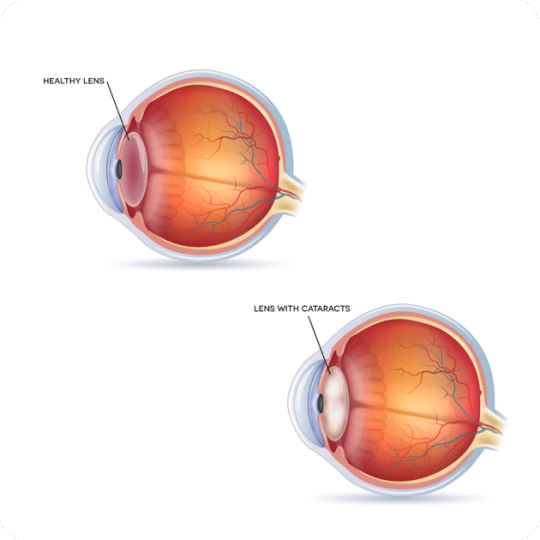
Meet leading cataract surgeons at Nexus Eyecare. Our advanced cataract eye surgery will help you improve your vision. Book a consultation session today at Blacktown and Norwest and get treated by the best cataract surgeons.
0 notes
Text
अंबिकापुर में आँखों का ऑपरेशन कैसे होता है - पूरी जानकारी
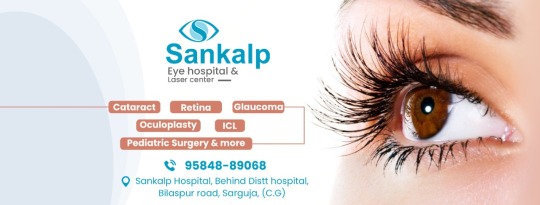
अंबिकापुर में आँखों का ऑपरेशन करवाने से पहले जानें इस प्रक्रिया के बारे में सभी जानकारी। यहाँ पढ़ें पूरी जानकारी।
अंबिकापुर में आँखों का ऑपरेशन करवाने से पहले आपको इस प्रक्रिया के बारे में सभी जानकारी होनी चाहिए। यहाँ आप पूरी जानकारी पा सकते हैं, जैसे कि ऑपरेशन की विधि, उपचार के बाद की देखभाल और इससे जुड़ी अन्य महत्वपूर्ण जानकारी।
आँखों के ऑपरेशन का मतलब क्या होता है?
आँखों के ऑपरेशन का मतलब होता है कि आपकी आँखों में कोई समस्या हो जिसे ऑपरेशन के द्वारा ठीक किया जा सकता है। इस प्रक्रिया में एक चिकित्सक आपकी आँखों की समस्या को देखता है और उसे ठीक करने के लिए एक ऑपरेशन करता है। यह आमतौर पर एक साधारण प्रक्रिया होती है जो आपकी आँखों के लिए बहुत उपयोगी होती है।
अंबिकापुर में भी आँखों के ऑपरेशन की सुविधा उपलब्ध है। यहाँ आपको एक अनुभवी चिकित्सक द्वारा आपकी आँखों की समस्या को देखा जाता है और उसके अनुसार एक ऑपरेशन किया जाता है। आँखों के ऑपरेशन के लिए कुछ विशेष उपकरण भी इस्तेमाल किए जाते हैं जैसे कि लेजर या एक्सरे आदि। इस प्रक्रिया के दौरान आपको अनेस्थेजिया दी जाती है ताकि आपको कोई दर्द न हो। इस प्रक्रिया के बाद आपको थोड़ी सी आराम करने की आवश्यकता होती है और आपको अपने चिकित्सक के द्वारा दिए गए निर्देशों का पालन करना चाहिए।
आँखों के ऑपरेशन के लिए तैयारी कैसे करें?
अगर आप अंबिकापुर में आँखों का ऑपरेशन करवाने जा रहे हैं, तो आपको इसके लिए तैयारी करनी होगी। आपको अपने डॉक्टर से संपर्क करना चाहिए और उनसे ऑपरेशन से संबंधित सभी जानकारी प्राप्त करनी चाहिए। आपको अपनी आँखों की समस्या के बारे में भी अच्छी तरह से जानना चाहिए ताकि आप अपने डॉक्टर को सही जानकारी दे सकें। आपको ऑपरेशन से पहले भोजन की तैयारी करनी चाहिए और अपने डॉक्टर की सलाह के अनुसार दवाओं का सेवन करना चाहिए।
आँखों का ऑपरेशन करवाने से पहले, आपको अपने डॉक्टर से सलाह लेनी चाहिए कि आपको कौन सी तैयारी करनी चाहिए। आपको अपनी आँखों की समस्या के बारे में अच्छी तरह से जानना चाहिए ताकि आप अपने डॉक्टर को सही जानकारी दे सकें। आपको ऑपरेशन से पहले भोजन की तैयारी करनी चाहिए और अपने डॉक्टर की सलाह के अनुसार दवाओं का सेवन करना चाहिए। आपको ऑपरेशन के दौरान शांत रहना चाहिए और अपने डॉक्टर की सलाह के अनुसार आगे की देखभाल करनी चाहिए। आपको ऑपरेशन के बाद भी अपने डॉक्टर की सलाह के अनुसार दवाओं का सेवन करना चाहिए और अपनी आँखों की संरक्षण के लिए उनकी सलाह का पालन करना चाहिए।
ऑपरेशन के दौरान क्या होता है?
अंबिकापुर में आँखों का ऑपरेशन के दौरान आपको एक निश्चित समय के लिए अस्थायी अंधापन महसूस हो सकता है। आपको ऑपरेशन के दौरान चिकित्सक द्वारा बताए गए सभी निर्देशों का पालन करना चाहिए। आपको ऑपरेशन के बाद भी कुछ समय तक अपनी आँखों की देखभाल करनी होगी और अपने डॉक्टर की सलाह का पालन करना होगा।
आँखों का ऑपरेशन एक चिकित्सा प्रक्रिया होती है जिसमें आपकी आँखों की समस्या को दूर करने के लिए एक छोटी सी कटाव की जाती है। इस प्रक्रिया के दौरान आपको एक निश्चित समय के लिए अस्थायी अंधापन महसूस हो सकता है। इसलिए, आपको ऑपरेशन के दौरान चिकित्सक द्वारा बताए गए सभी निर्देशों का पालन करना चाहिए। आपको ऑपरेशन के बाद भी कुछ समय तक अपनी आँखों की देखभाल करनी होगी और अपने डॉक्टर की सलाह का पालन करना होगा। इस प्रक्रिया के बारे में अधिक जानकारी के लिए, आप अपने चिकित्सक से परामर्श कर सकते हैं।
ऑपरेशन के बाद की देखभाल कैसे करें?
अंबिकापुर में आँखों का ऑपरेशन के बाद, आपको अपनी आँखों की देखभाल करनी होगी। आपको अपने डॉक्टर द्वारा बताए गए सभी निर्देशों का पालन करना चाहिए। आपको अपनी आँखों को साफ रखना चाहिए और अपने डॉक्टर द्वारा बताए गए दवाओं का सेवन करना चाहिए। आपको अपनी आँखों को धूप से बचाना चाहिए और अपने डॉक्टर की सलाह का पालन करना चाहिए।
ऑपरेशन के बाद, आपको अपनी आँखों की देखभाल करने के लिए कुछ बातों का ध्यान रखना चाहिए। आपको अपनी आँखों को साफ रखना चाहिए और अपने डॉक्टर द्वारा बताए गए दवाओं का सेवन करना चाहिए। आपको अपनी आँखों को धूप से बचाना चाहिए और अपने डॉक्टर की सलाह का पालन करना चाहिए। आपको अपनी आँखों को ठंडे पानी से साफ करना चाहिए और अपनी आँखों को रखरखाव के लिए नियमित अंतराल पर अपने डॉक्टर के पास जाना चाहिए। आपको अपनी आँखों को अधिक से अधिक आराम देना चाहिए और अपने डॉक्टर की सलाह का पालन करना चाहिए।
ऑपरेशन के बाद सावधानियां और समस्याएं।
अंबिकापुर में आँखों का ऑपरेशन के बाद, आपको कुछ सावधानियों का ध्यान रखना चाहिए। आपको अपनी आँखों को धूप से बचाना चाहिए और अपने डॉक्टर की सलाह का पालन करना चाहिए। आपको अपनी आँखों को साफ रखना चाहिए और अपने डॉक्टर द्वारा बताए गए दवाओं का सेवन करना चाहिए। अगर आपको ऑपरेशन के बाद कोई समस्या होती है, तो तुरंत अपने डॉक्टर से संपर्क करना चाहिए।
ऑपरेशन के बाद, आपको अपनी आँखों को धूप से बचाना चाहिए। आपको अपने डॉक्टर की सलाह का पालन करना चाहिए और अपनी आँखों को साफ रखना चाहिए। आपको अपने डॉक्टर द्वारा बताए गए दवाओं का सेवन करना चाहिए। ऑपरेशन के बाद कुछ समस्याएं हो सकती हैं, जैसे कि आँखों में जलन, सूखापन, या आँखों का लाल हो जाना। अगर आपको ऑपरेशन के बाद कोई समस्या होती है, तो तुरंत अपने डॉक्टर से संपर्क करना चाहिए। आपके डॉक्टर आपको आँखों की देखभाल के बारे में अधिक जानकारी देंगे और आपको बताएंगे कि आपको कैसे अपनी आँखों की सेवा करनी चाहिए।
In conclusion, we hope you found this article helpful in understanding the exceptional eye care services provided by Sankalp Eye Hospital in Ambikapur, Chhattisgarh.
Ambikapur mein aankhon ka hospital | Ambikapur mein motiyabind ka operation cost | Ambikapur mein Motiyabind ka ilaaj | Motiyabind ka operation kab karna chahiye | Aankhon ka operation kaise hota hai | Ambikapur mein motiyabind ka operation ka kharcha | Aankhon ka sabse accha hospital Surguja mein.
#ophthalmology#ophthalmologist#the good doctor#cataract#glaucoma#cataractsurgery#lasik eye surgery in delhi#lasik surgery specialists#best lasik eye surgery in hyderabad#lasik#lasik eye surgery market#ambikapur#chhattisgarh#eye drops#operation#eye opening#eye hospital near me#hospitalization
3 notes
·
View notes
Text
What Is Considered Strenuous Activity After Cataract Surgery?
What Is Considered Strenuous Activity After Cataract Surgery?
Cataract surgery has become a routine and highly effective procedure for restoring vision impaired by the clouding of the eye's natural lens. To ensure a safe and successful outcome, patients must follow post-operative guidelines diligently, especially when it comes to engaging in physical activities. In this blog, we will explore what constitutes strenuous activity after cataract surgery and how patients can navigate their recovery phase while considering factors such as safety, effectiveness, and the associated costs.
How to Get Safe and Effective Cataract Surgery?
The first step in ensuring a smooth recovery from cataract surgery is to choose a reputable eye surgery hospital and a skilled cataract surgery specialist. Whether you are in search of best eye surgery hospitals in major cities or specific cataract surgery specialists, thorough research is essential. Look for hospitals and specialists with a proven track record of successful surgeries, positive patient experiences, and a commitment to the highest standards of safety and care.
What is Strenuous Activity?
After cataract surgery, patients are advised to avoid strenuous activities during the initial stages of recovery. Strenuous activities involve any physical exertion that could increase intraocular pressure, potentially leading to complications such as increased inflammation, bleeding, or a dislocated intraocular lens.
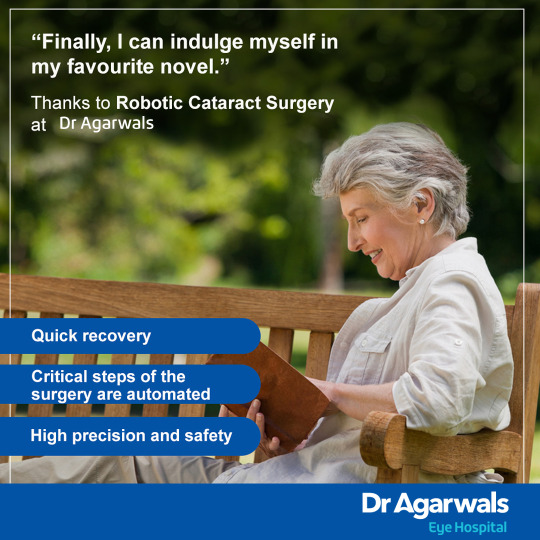
Strenuous activities to avoid after cataract surgery include
Heavy Lifting: Activities that involve lifting heavy objects can strain the body and increase intraocular pressure. Patients should refrain from lifting objects exceeding the weight limit specified by their surgeon.
Intense Exercise: Vigorous exercises such as running, weightlifting, or high-impact aerobics can elevate heart rate and blood pressure, potentially affecting the eyes. Instead, patients are encouraged to engage in light, low-impact exercises like walking.
Bending Over: Activities that involve bending at the waist, like tying shoelaces or gardening, should be approached with caution. Sudden movements can strain the eyes and hinder the healing process.
Rubbing the Eyes: Touching or rubbing the eyes can introduce bacteria, increasing the risk of infection. Patients are advised to resist the urge to touch or rub their eyes, especially in the immediate postoperative period.
Recovery Protocols and Patience:
In addition to avoiding strenuous activities, patients must adhere to specific recovery protocols prescribed by their cataract surgery specialists. These protocols typically include
The use of prescribed eye drops,
Attending follow-up appointments, and
Practising good eye hygiene.
Patience is a virtue during the recovery period. While the majority of patients experience significant improvement in vision shortly after surgery, complete recovery may take some time. Understanding that the healing process is gradual can help manage expectations and reduce anxiety. Patience is particularly vital when it comes to engaging in regular activities, including work and social commitments.
What is the Importance of Follow-Up Appointments?
Regular follow-up appointments with the cataract surgery specialist are integral to monitoring progress and addressing any potential issues promptly. These appointments allow the surgeon to assess visual acuity, evaluate the health of the eye, and make any necessary adjustments to the treatment plan.
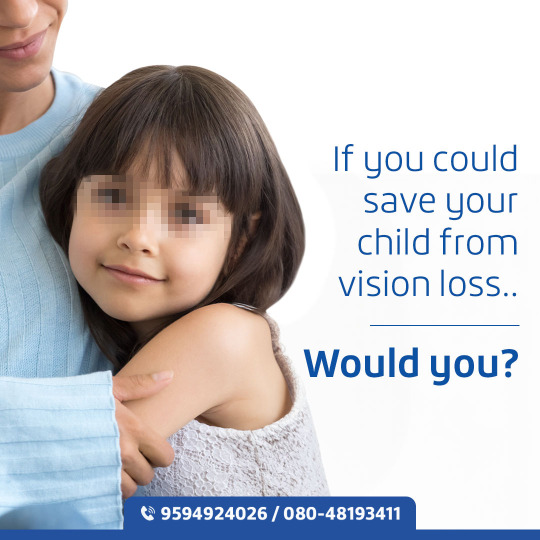
Patients should not overlook the significance of these follow-up appointments, as they provide an opportunity to discuss concerns, ask questions, and receive personalised guidance on when it is safe to resume specific activities. Clear communication with the surgeon fosters a collaborative approach to recovery, ensuring that any potential complications are identified and addressed early on.
Cost of Cataract Surgery Hospitals
While prioritising safety and effectiveness, it's also essential to consider the cost of cataract surgery, especially for those seeking treatment in specific cities. The cost of cataract surgery can vary based on factors such as the hospital's reputation, the surgeon's expertise, and the type of intraocular lens used.
Potential patients should research and compare the costs of cataract surgery hospitals in their city, keeping in mind that higher costs may reflect better facilities, experienced surgeons, and advanced technology. It's crucial to strike a balance between quality and affordability, ensuring that the chosen hospital provides optimal care without breaking the bank.
Choosing Dr Agarwals Eye Hospital for your cataract treatment is synonymous with choosing excellence, experience, and an unwavering dedication to your vision. Illuminate your path to vision restoration with the trusted experts at DR Agarwal's – where your eyes take precedence, and your vision is their mission. Seize the opportunity to schedule your consultation today and embark on the first steps towards a future filled with brighter, clearer vision. Dial [9594924026 | 080-48193411] to know more about eye care tips.
In the journey towards restored vision through cataract surgery, patients must prioritise safety, effectiveness, and cost. Choosing reputable eye surgery hospitals and specialists, understanding and avoiding strenuous activities during recovery, and considering the associated costs are crucial steps in achieving a successful outcome. By taking a proactive approach and following postoperative guidelines diligently, patients can navigate their post-cataract surgery journey with confidence and pave the way for a clearer and brighter future.
#best eye hospitals#eye care hospitals#eye surgery specialist#eye hospitals#cataract eye surgery#cataract surgery hospitals
1 note
·
View note
Link
0 notes
Text

Cataract surgery in Pitampura
Cataract Surgery In Pitampura, Delhi
Micro Phaco with Micro Incision Foldable Lens (MICS)
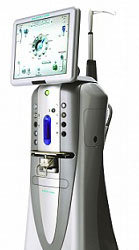
Cataract is the clouding of the lens of your eye that impairs vision. Cataract is responsible for more than half of blindness in the world, which is a grim fact because it is a treatable condition. In cataract there is a buildup of protein in the lens that makes it cloudy. This prevents light from passing clearly through the lens, thereby causing loss of vision.
Advancing age is a primary reason for cataract. With age, protein of the lens turns opaque. Other causes of cataract are metabolic disorders such as diabetes, excessive exposure to sunlight, lifestyle disorders like heavy alcohol consumption and smoking. Injury to the eye can also lead to clouding of the lens of the eye.
Treatment of Cataract
When cataract forms, surgery is the only way to treat it. In cataract surgery, the surgeon removes the clouded lens and puts an Intra Ocular Lens (IOL) in your eye. Your vision will be as good as pre-cataract days, though you may need to wear glasses. Over the years, cataract surgery has moved from vision restorative to refractive surgery, so that you have reduced need of glasses.

Type of Intra Ocular Lenses (IOL) for Cataract Surgery
Foldable IOL Micro Phaco Surgery
Aspheric Foldable IOL Micro Phaco Surgery
Toric Foldable IOL Micro Phaco Surgery
Multi-Focal Foldable IOL Micro Phaco Surgery
Phacoemulsification with Foldable IOL's
At Bajaj Eye Care Centre we use STELLARIS TM Micro Surgical System which is the world’s most advanced technology of Cataract Surgery by Bausch and Lomb approved by FDA.
Through microphaco technology a very small incision of around 1.8mm is required to remove cataract from the eye. Through this ultra small incision, a very high frequency MICS Phaco tip is introduced inside the eye, breaking the hardest of cataracts into very small fragments which are sucked out through the same tip. Irrigation is provided through a separate side port. This arrangement provides the advantage of speedy recovery, faster healing and lesser surgery induced astigmatism. The surgery involves insertion of foldable Intra-Ocular lens which can be inserted through the 1.8mm incision.
Bajaj Eye Care Centre is also equipped with Pulsar Minimal Stress Phaco Emulsification with advanced Posterior Vitrectome System from OPTIKON(Italy)
We are handling a variety of Cataract cases and have given complete satisfaction to thousands of patients who have chosen Bajaj Eye Care Centre for cataract surgery.
Types of Intra-Ocular Lenses (IOL) for Cataract Surgery
Hydrophilic foldable IOL
Hydrophobic foldable IOL
Aspheric foldable IOL
MICS foldable IOL
Toric foldable IOL
Multifocal foldable IOL
Crystalens foldable IOL from Bausch & Lomb
#Cataract surgery in Pitampura#Cataract surgery cost in Pitampura#Cataract operation in Pitampura#Eye Care Hospital In Pitampura#Eye Hospital In Pitampura#Eye Care Centre In Pitampura#Eye Specialist in Pitampura#Eye Doctor in Pitampura#Eye Clinic in Pitampura#Best eye Doctor in Pitampura
2 notes
·
View notes